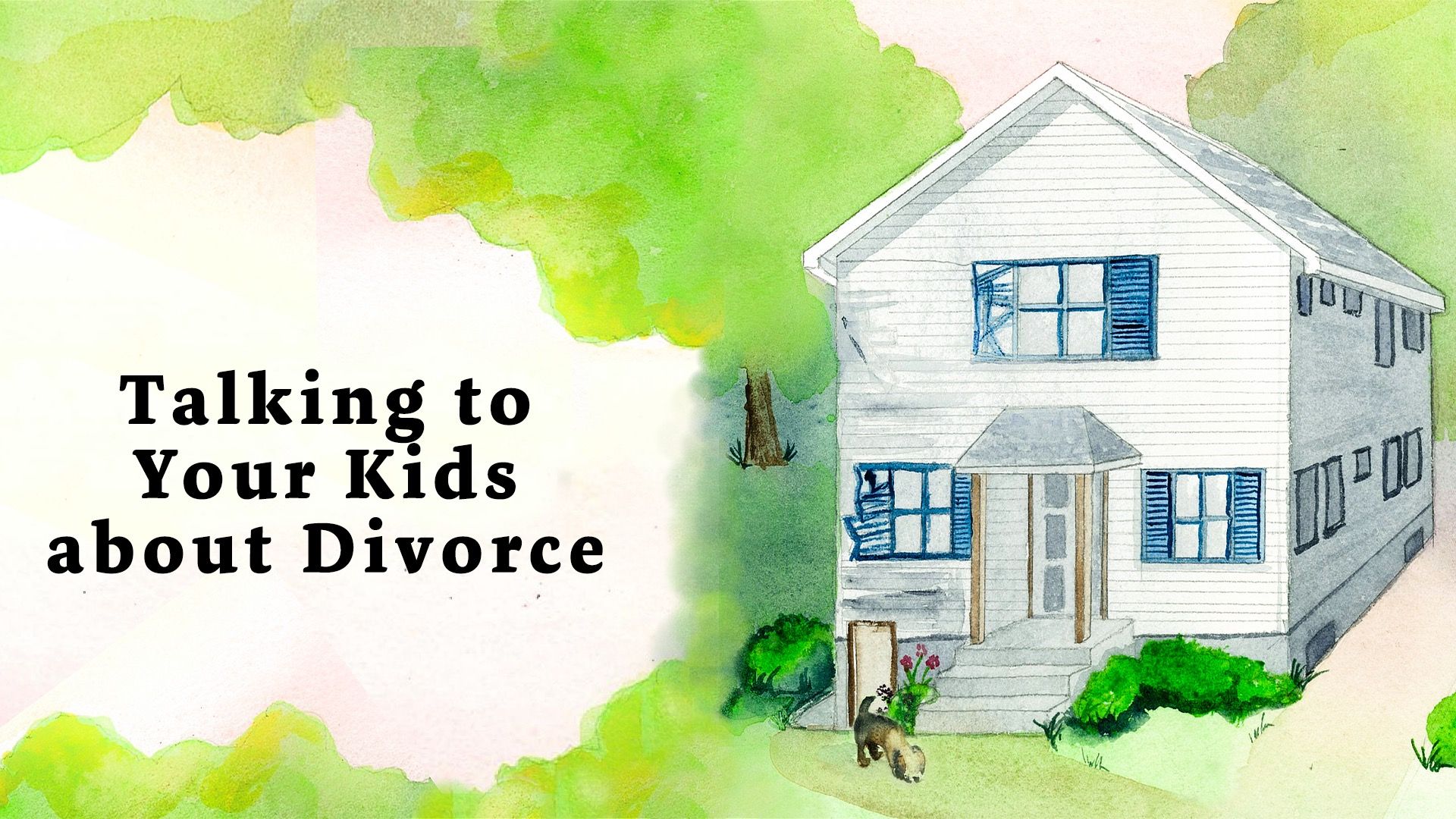Divorce: Rebuilding Communication
May 29, 2023
THE ANNOUNCEMENT
It's not easy talking about divorce.
Honestly, I didn’t want to write this article. I have a very hard time opening up and communicating my feelings, which might surprise you seeing that I’m a cofounder of Speak with People. But it’s true. And just because I’ve already written a book about this doesn’t really make it any easier.
Yet, I knew I needed to write this so let me start by pulling back the curtain on that day in Jr High when my parents announced they were getting a divorce.
It was a beautiful, sunny afternoon. We were at home, a white house with blue shutters. My parents sat us three kids down in our family room to talk. Even my beagle named Carmen joined us. I can picture the scene clearly in my mind as if it was yesterday. My sister sat to my right and my brother next to her. My dad sat across from me with my mom to his left. I was light-hearted and joyful, wondering what new adventure my family would embark on next.
My dad looked us in the eyes and announced, “Mom and I are getting divorced.”
I laughed.
Yes. I’m serious. I laughed. This experience was so surreal that I laughed.
It was even traumatic enough that apparently, my brain remembered things completely different than how that day really occurred. That clear picture in my memory of my sister and brother sitting to my right and my parents across from us, I recently discovered, was wrong. We were upstairs in the living room, not the family room in the basement. And I was sitting next to my mom with my sister across from me. I wonder if I must have felt so strongly that the divorce was creating a division between my family, that my subconscious made me believe that there was a clear divide between my parents and us kids. I don’t know.
What I do know is I do remember correctly that I laughed and when I laughed, my sister glared at me. And at that moment, for the first time, I realized this was serious. It wasn’t some outrageous joke; it was real. My smile immediately dropped while my stomach started to turn in such a gut-wrenching pain that I had to gasp for air. It felt like my entire world suddenly halted to a dead stop.
I don’t know if there’s a “good” way for parents to break the news to their kids, but what I do know is that kids need to connect with their parents and have healthy communication throughout the entire divorce process. It’s a journey and probably a longer journey of healing than you may realize.
THE JOURNEY
From my experience both as a kid whose parents divorced and with decades of experience working with kids and teenagers, here are a few of my thoughts:
- Be consistent. You will be going through a lot of pain, too. Your emotional tank will probably be empty. Be responsible and get the help you need so that you can still function in the role of a parent. Stick to a schedule. Do what you say you will do. Be predictable. Your child needs to know you won’t leave them. Being consistently present builds the foundation to rebuilding trust and having a healthy line of communication with your kids.
- Rebuild trust. Divorce is a broken promise that affects everyone in the family. It may be appropriate or justified based on the circumstances, but with any broken relationship comes distrust. That trust needs to be rebuilt. That takes time and intentionality.
- Focus on your child. Don’t ever talk negatively about your ex in front of your kids. And don’t share all your emotional baggage with them; that’s something you share with your counselor or support group.
- Encourage and support. Your child needs to be told on a regular basis that they are loved. The divorce will provoke fear, pain, and fill their minds with questions and lies about who they are. They might feel like they are to blame for the divorce. They might feel like they are messed up because of it. They might feel like a burden. Remind them of their value. That they have purpose and mean the world to you. They are important, beautiful, and loved.
By being consistent, rebuilding trust, and focusing on your child with encouragement and support, you will develop the foundation needed to have a strong relationship and healthy communication with your kids.
Shortly after my parents announced the divorce, my friend Danielle noticed something had changed in me. She asked me what was wrong; I hesitated.
“Just trust me,” I remember Danielle saying to me. Trust her? It seemed like a crazy idea to just trust her with the big news, but I was like, why not? So I decided to open up and let her in, and I’m glad I did.
Sometimes, kids just need to be asked how they are doing and if they feel safe, they will open up and talk. Other times, talking is the last thing kids want to do.
As a teenager, I didn’t talk about the divorce much. Fearful of what people may think when they saw the ugly mess within me, it was easier to box up my emotions, put on a poker face, and not let them in. It was a protection mechanism. I didn’t want people to see my weakness and vulnerability for fear of being hurt even more.
My dad would try to talk about the divorce with me in an effort to normalize it. I hated it. I wasn’t ready for those conversations. Communication is a journey.
Maybe your kids talk with you about how they are feeling. That’s amazing. Keep those conversations going for as long as you can, even if it means letting them rant and rave. Provide a safe place for them to process their emotions.
On the flip side, many kids don’t want to talk about the divorce, especially with their parents. Maybe this statement will be a little controversial, but… I think that’s okay.
It’s okay not to push talking about the divorce with your kids. I’m not saying to ignore it. There still needs to be intentional conversations taking place but focus on your child, not the divorce. Talk with your kids about how they are doing and feeling. Building a safe and reliable line of communication is incredibly important. Allow your kids to direct the conversations and at some point, they will talk about the divorce.
CREATIVE COMMUNICATION
And remember, there are more ways to talk with your kids than just face-to-face. There are ways to communicate that don't involve the intensity of a direct conversation.
One time during high school, my friend Stephanie gave me a birthday present. She handed me what looked like a small gift-wrapped book. Intrigued, I tore off the paper. It was a book full of encouraging quotes.
“I don’t really understand what you’re going through,” Stephanie said gently. It was clear she was referring to my parents’ divorce. “And I have no idea how to help. But I’m here for you, if you ever need anything.”
Stephanie and I didn’t have tons of deep conversations about my parents' divorce, but she communicated with me her support and encouragement through a small book. That small gift, that gesture, was significant to me. After all these years, I still have that book, safely packed away in a box of memories from my childhood.
In the Marriage Blog, Dr. Rachel K Shannon suggests taking into consideration the Five Love Languages, developed by Dr. Gary Chapman, to help your marriage. This is true for any relationship, including with your kids. You can communicate encouragement and support to your kids through:
- Words of Affirmation - This can be written. Try writing a note of encouragement and putting it in their lunch box or on their bathroom mirror.
- Quality Time - Give your child your undivided attention. No distractions, phones, or computers. Full focus on them.
- Physical Affection - Hugs, sitting next to each other, a pat on the back, or a high five are all ways to show you love them through appropriate physical touch..
- Gifts - Give a meaningful and tangible item. This doesn’t have to be expensive, but it does need to be thoughtful. Something that’s symbolic or made you think of them.
- Acts of Service - For some people, actions speak louder than words. For example, you could help your kids with their homework or chores.
Try brainstorming creative ways to communicate with your kids from these different categories.
One day in college, I was sitting at a round table across from my mentor in the commons. I trusted her and was trying to share my feelings, but it was so hard that I literally couldn’t get the words out of my mouth. So I wrote them down and handed the paper to her. Perhaps texting your kid or passing back and forth a journal would provide your child an opportunity to share their feelings when they are too big to get past their lips.
By being consistent, rebuilding trust, focusing on your child, and exploring creative ways to communicate, you can help your child navigate the difficult journey through divorce.
By Caitlyn Neel - Author, A House Reconciled: Journeying Through My Parent's Divorce
With two decades of experience working with kids and teenagers, Caitlyn uses her book to encourage and walk students through the healing process. Caitlyn is also a certified life coach and cofounder of Speak with People.

